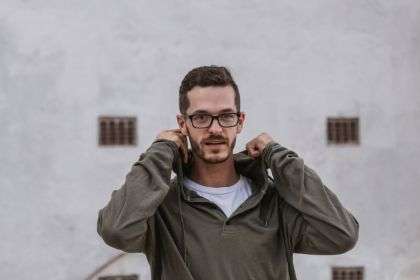You probably saw memes and social posts about “quarantinis” and relying on alcohol to cope with social distancing and loneliness during the COVID-19 pandemic. For people who are lonely, isolated and struggling with substance use disorders, the jokes about drinking and isolation are less humorous and more a reality.
Some experts say they have seen correlations between traumatic events and increased alcohol use, increased calls to mental health centers, and increased calls to domestic abuse hotlines (Washington Post). For example, after 9/11, major hurricanes like Katrina in 2005, and the Great Recession of 2008-09, those of us in addiction recovery saw increases in substance abuse and requests for help.
Get help: Alcohol Rehab Orange County
Of course, drug addiction and substance use disorders are much more complicated than that. It’s not fair to say a global pandemic causes alcoholism; however, we know that during difficult times, whether global, regional, local or personal, some people turn to drugs and alcohol to self-medicate. We expect to see a number of studies over the next few years that will look at coronavirus and depression, coronavirus and mental health, and how social distancing might affect depression and substance use disorders.
Related: For information about what Cornerstone of Southern California is doing to protect its staff and residents, read our COVID-19 update.
Alcohol and COVID-19 Facts
The World Health Organization (WHO) issued a statement called “Alcohol and COVID-19: What You Need to Know,” that says:
- Alcohol does not prevent or protect you from COVID-19. Any statements that you hear or read to the contrary are myths.
- Heavy alcohol use weakens your immune system.
- Because alcohol has short- and long-term effects on every organ in your body, your susceptibility to effects of COVID-19 (or any virus) increases with every ounce you drink.
- Alcohol weakens your judgment, which puts you at risk for making bad decisions.
- Heavy alcohol use also puts you at risk for acute respiratory distress syndrome (ARDS), which is a complication associated with COVID-19.
- Alcohol does not, in fact, reduce stress; it actually increases risks and symptoms of panic and anxiety disorders, depression, and other mental disorders.
COVID-19 in California
California was one of the first states to report deaths from COVID-19 in 2020, according to the CDC, so our state was quick to respond with strict social-distancing guidelines. The good news is that many believe California’s rapid and serious response to preventing further spread of the virus contributed to saving millions of lives. Very early in the pandemic, the state issued statewide stay-at-home orders, allowing only essential workers to leave their homes.
For example, in Los Angeles, the local government allowed businesses to refuse to do business with people who weren’t wearing protective masks, and they required businesses to allow employees to sanitize their hands every 30 minutes.
The unfortunate news is that it left a lot of Californians isolated, working from home, unable to see friends and family members, and feeling lonely. And for some people, the only way they know how to cope with such loneliness and isolation is to self-medicate with alcohol.
For the latest information on coronavirus and in California, visit the state’s health department website.
Signs You May Be Drinking Too Much
Did you drink your way through coronavirus social distancing? Here is a checklist of signs that you may have been drinking too much alcohol during the global pandemic:
- You drank because you felt stressed.
- You drank every day and consumed more than the dietary guidelines established by the USDA (up to 1 drink per woman and 2 per man).
- You drank when you felt bored.
- You drank at home while working remotely.
- You worried about having enough alcohol at home.
- You slacked on your daily responsibilities.
- You made decisions that you regretted while you’d been drinking.
- You felt physically (and mentally) worse after drinking.
- You experienced withdrawal symptoms when you stopped drinking alcohol.
- You want to stop, but you can’t.
- Someone else has expressed concerns about your drinking.
What to Do If You Drank Too Much During Social Distancing
If you read through the above list and feel that your drinking is excessive and out of control, we are glad you are on our website reading this article. You’re only a few clicks away from a live person, who can talk you through your next steps.
Stopping drinking cold turkey, without medical supervision, can be dangerous, especially if you try to detox at home on your own. We encourage you to reach out to one of our addiction counselors for a free consultation. They are available 24 hours a day.
Talk to them about our medication assisted treatment program and how it works for drug and alcohol withdrawal.
Cornerstone of Southern California has been around for more than 30 years, and we have seen many people who’ve experienced loss and stress after personal and global tragedies. Our practice is based on the 12-step program, and it is backed by evidence-based science. We treat each person as an individual and prescribe treatment based not only on your history of substance use but also based on factors that led to your self-medication and addiction.
We have doctors and counselors on staff who will assess your mental, physical, and emotional needs during your detox, recovery, and sober-living process.






